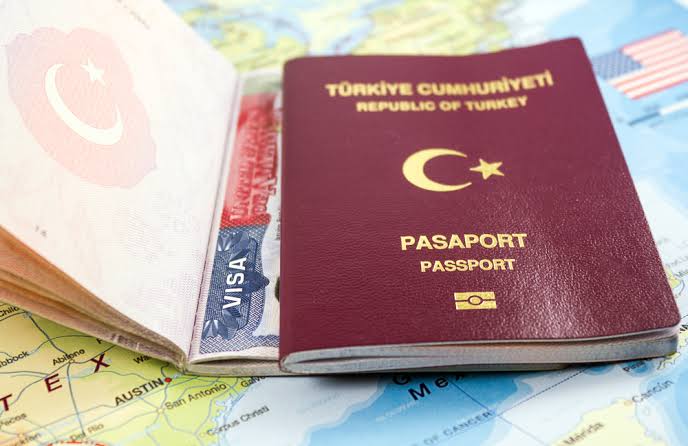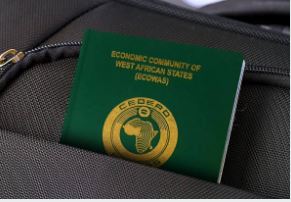If your next move is to immigrate to Italy from Nigeria, knowing how much an Italy visa costs should be paramount. Italy is a rich country with history, art, culture, and scenic embellishment that attracts people for different purposes.
Thus, the country is a popular destination for those exploring a new location. Living your Italy dream is real. You must also understand that while the Italy visa fee is sometimes called the Schengen visa fee, it varies from other Schengen countries. What is applicable in Finland or Austria may not be applicable in Italy.

Regardless, you must understand the cost of the visa application to make it easier. The table below shows the latest visa fee for Italy in Nigeria.
| Visa type | EUR | NGN* |
|---|---|---|
| Short stay (For all travel purposes) | 80.00 | 68,344.00 |
| Short stay for children between the ages of 6 and 12 years (For all travel purposes) | 40.00 | 34,166.00 |
| Short stay for children between the ages of 0 and 6 years (For all travel purposes) | FREE | FREE |
| Long stay (Study) | 50.00 | 42,708.00 |
| Long stay (Work & Employment) | 116.00 | 99,083.00 |
| Long stay (Family Reunion) | 116.00 | 99,083.00 |
| Long stay (Family Member of E.U. Citizen) | FREE | FREE |
| Long stay (Re-entry) | 116.00 | 99,083.00 |
*The visa fee is fixed in EUR but payable only in Nigerian Naira and can only be paid with a Credit/debit card. Also note that there’s an additional service fee of NGN 6,000, which is mandatory for any visa application.
Table of Contents
What are the Types of Italy Visas?
Now that you know the cost of visa fees, we need to understand the types of Italy visas available for Nigerians immigrating to Italy. The type of visa you will apply for is based on the purpose of your visit. Common among them are:
Short-stay Schengen Visa: This visa is issued to tourists, business people, or individuals traveling from Nigeria to Italy on a short visit. Its duration is usually less than 90 days.
Long-stay national visa: If you intend to stay in Italy longer than 90 days, you can apply for this visa. It is usually for study, work, or family reunification.
What is the Italy visa application fee?
To process your visa to Italy, you need to pay a certain sum of money. This money is your visa application fee. Nigerians and nationals of other countries moving to Italy must pay a fee when requesting their visa, except there is a fee waiver. The visa is not reusable and expires once used for the application. Hence, when applying for another visa, you must pay a visa fee.
However, if you belong to the groups below, you are exempted from visa fee payment:
- Six-year-old applicants and below
- 25-year-old applicants who are members of non-government organizations (NGOs) visiting Italy for a seminar organized by an NGO
- Family members of European Union nationals
- Children, spouses, or parents of Italian citizens
- Researchers going on scientific research in Italy
How much is the Italy Visa Fee for Nigerian Applicants?
Here is the current rate for Italy visa fee for Nigerians as of November 2023:
Short-stay Schengen visa: The fee for children above 12 years and adults is approximately 80 euros (₦68,344.00). That of children between 6 and 12 is about 40 euros (₦34,166.00). Children under six years of age are exempted from visa fee payments.
Long-stay national visa: There are at least three visa categories of this type, including work, study, and family reunification. The visa fee ranges from 50 to 100 euros (₦42,705.80 to ₦85,411.60). However, you must understand that their prices will continually change. So, be sure to research the Italian visa website for current updates.
Besides, there are additional costs you may pay during this time. They include travel and medical insurance, document translation, or fees for collecting your biometrics.
There could also be cost exemptions for some applicants based on their unique situations. Specific categories of travelers enjoy visa fee exemptions. They have been mentioned above. Hence, it is essential to check with the Italian embassy whether your category falls under fee discounts or exemptions.
What are the Payment Methods for the Italy Visa Fee?
Visa applicants can use different methods to pay their fees, including bank transfers, online payments, cash payments, and other means. However, most times, you are required to make payment via credit/debit card. You must follow the payment instructions by the visa officials to avoid forfeiture of your payment.
How do I Apply for an Italy Visa?
To apply for an Italy visa, follow the basic steps below:
#Step 1: Apply early
Submit your application at least three weeks before your travel date. The waiting time can take longer, depending on the number of persons in the queue. Hence, the earlier you submit it, the better.
#Step 2: Locate the nearest Italian embassy or consulate to schedule an appointment
You can visit the embassy or consulate in Lagos and schedule your visa fee payment appointment. A visa application center can also be relevant for your submission.
#Step 3: Fill out the visa application form
You must complete the visa application form appropriately and provide relevant information. You will submit two signed copies of the application form to the embassy or consulate.
#Step 4: Pay the visa fee
The embassy or consulate will inform you how to pay your visa application fee. They may ask you to pay online or through a bank transfer. Attach the payment confirmation to the rest of the documents.
Step 5: Prepare for the interview
Common questions during the interview include the following:
- What is your purpose for visiting Italy?
- Will you travel by yourself?
- Do you have any relatives or friends in Italy?
- How much money do you make?
Look up more questions from the internet and prepare yourself for the interview.
#Step 6: Submit the application
After double-checking your documents, you can proceed to the embassy/consulate for an interview, visa application submission, and fee payment. Ensure to be there at least 15 minutes before the scheduled time.
Where is Italy embassy located in Nigeria?
If you have an appointment with the Italian Embassy or consulate, you must visit the following locations close to your residence.
Lagos Address:
- LAGOS, TLScontact- Visa Application Centre
Fourth Floor, Ivie House, 4/6 Ajose Adeogun Street,
Victoria Island, Lagos, Nigeria
Abuja Address:
- ABUJA, TLScontact- Visa Application Centre
Third floor, El-Yakub Place,
Plot 1129 Zakaria Maimalari St, beside Metro Plaza,
Central Business District, Abuja, Nigeria
Read Next: Latest Dubai Visa Fee for Nigerian Travelers









